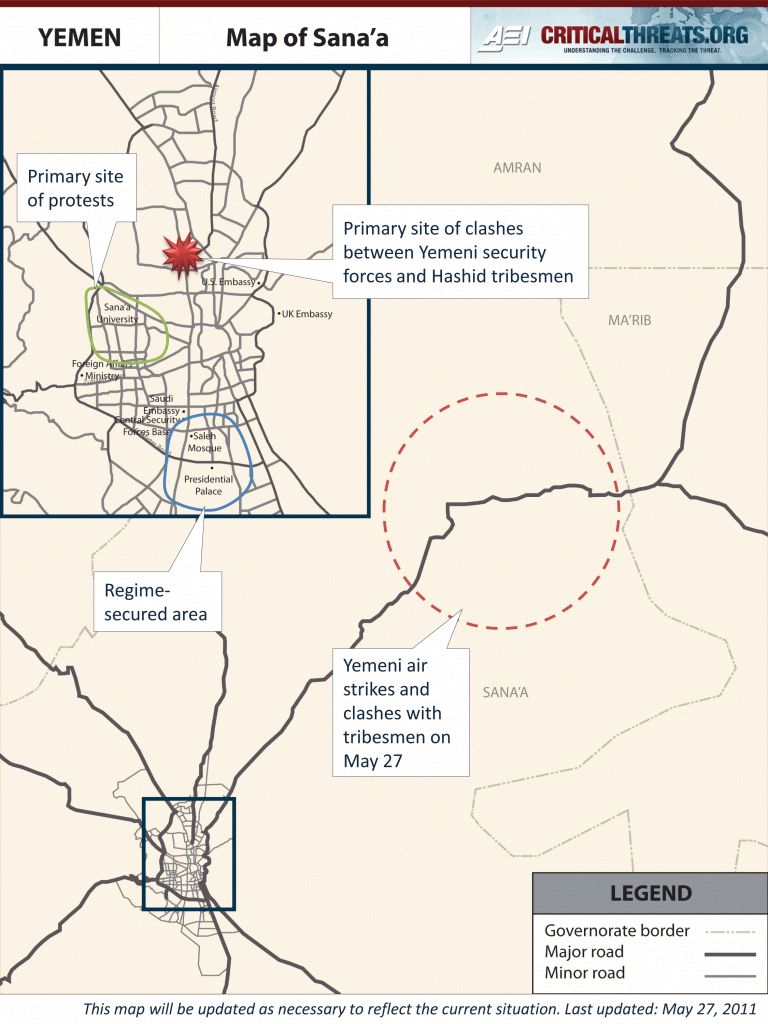Heavy fighting between government forces and tribesmen outside of Yemen’s capital has broadened the conflict. Al Qaeda in the Arabian Peninsula has gained operating space as Yemeni security forces have pulled out of al Qaeda strongholds to protect the regime’s interests.
Yemeni air force fighter jets conducted air strikes on tribal targets in Nihm district north of Sana’a. Republican Guard soldiers reportedly attacked a village, provoking tribesmen to retaliate and to gain control of two Yemeni military compounds. Military helicopters with reinforcements tried to land nearby and tribesmen report that they captured two helicopters, along with a number of soldiers, and shot down a third. This is not the first time the air force bombed Nihm; on May 10, government air raids killed four tribesmen.
Fighting in the capital has intensified, where Hashid tribesmen have been fighting the Yemeni security forces for five days. Security forces have closed the roads to prevent Hashid tribesmen from entering Sana’a. An estimated 10,000 Hashidi tribesmen have arrived in the capital since May 22. Hashid tribal leader Sheikh Sadiq al Ahmar announced that there is a ceasefire in Sana’a, but “if Ali Abdullah Saleh returned (to fighting) then we are ready.”
The defection of a Republican Guard commander may indicate a fracturing within Yemen’s elite force. Colonel Ali al Shaddadi released a video statement urging security force members to disobey orders.
The unrest has increased al Qaeda in the Arabian Peninsula’s operating space. Suspected al Qaeda militants have taken over the southern city of Zinjibar in Abyan governorate. Yemeni security forces have been redeployed from restive regions in the south to the capital to protect the Yemeni regime.
On May 22, President Saleh refused to sign a transition agreement in the absence of Yemeni opposition leaders, warning that the leaders were dragging the country into a civil war. The deal would have ended months of unrest in Yemen that have already challenged the fragile state. Mass demonstrations, inspired by Egypt and Tunisia, are occurring daily in Yemen’s major cities and these have been met with an increasing use of force. The opposition, united in its demand for the president’s resignation, has not been able to force Saleh out of power, decreasing the likelihood of a relatively peaceful transition.
If you would like to receive these updates by email, please sign up here.

